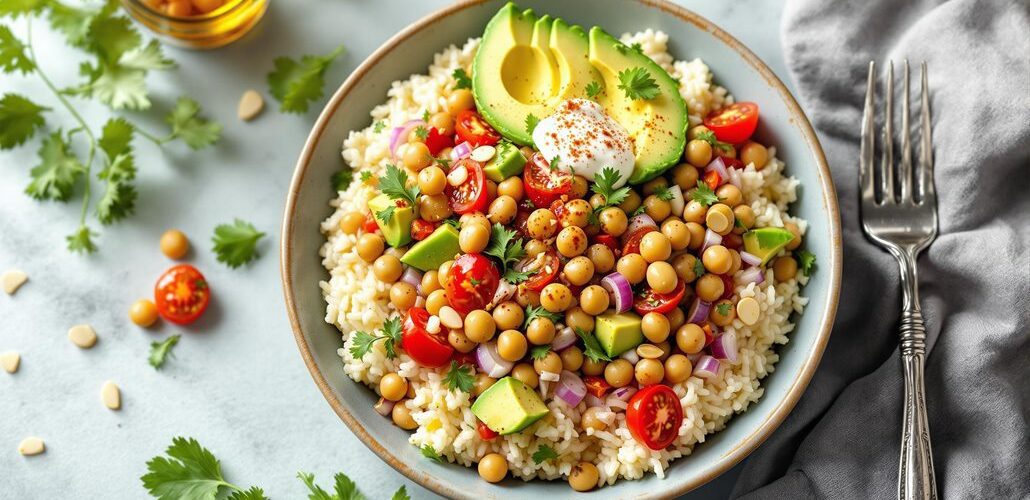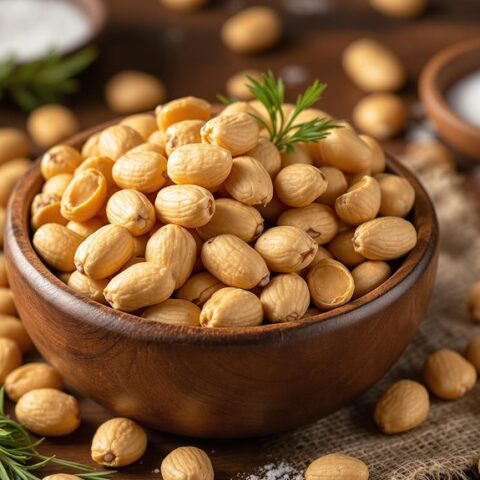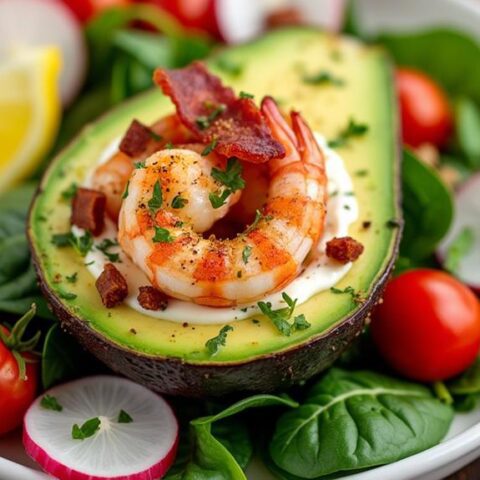
Black-eyed peas are generally not regarded as keto-friendly primarily due to their high net carbohydrate content, which can greatly hinder ketosis. At approximately 27-33 grams of net carbs per cooked cup, they surpass the typical carb limit of strict ketogenic diets. Despite their considerable protein, fiber, and essential mineral content, their carbohydrate density poses a challenge. Those adhering to a keto lifestyle need to exercise meticulous portion control if incorporating them. Alternatives like black soybeans offer lower-carb options. Exploring strategies for meal planning and alternative legumes can offer insight into more suitable choices for a keto-focused diet.
Key Takeaways
- Black-eyed peas are not considered keto-friendly due to their high net carbohydrate content.
- A 1-cup serving of black-eyed peas contains approximately 27-33 grams of net carbs.
- Strict ketogenic diets typically limit daily net carbs to 20-50 grams.
- Small servings can disrupt ketosis, making portion control crucial.
- Lower-carb alternatives like black soybeans and green beans are recommended for keto dieters.
Nutritional Breakdown
Black-eyed peas, a staple in many traditional cuisines, present a complex nutritional profile that may not align well with the parameters of a strict ketogenic diet. Foundational to their nutritional value, black-eyed peas contain approximately 14.26g of net carbs per 100g serving. This high net carb content poses a challenge for inclusion in a low-carb diet like keto, which typically restricts daily net carb intake to between 20 and 50 grams.
Despite the carbohydrate concerns, black-eyed peas are commendable for their protein content, providing 23.85g per 100g serving. This significant protein concentration underscores their reputation as a valuable plant-based protein source. However, their low-fat content, at just 2.07g per 100g, deviates from the high-fat requirement essential for a ketogenic diet, which emphasizes deriving 70-80% of daily calories from fats.
Additionally, healthy fats from sources such as avocados and nuts are prioritized in keto to support metabolic health. Furthermore, black-eyed peas are rich in fiber content, offering 10.7g per 100g, which aids digestion and supports overall health. While this fiber content can be beneficial, it does not negate the high net carb content, necessitating careful portion control for those adhering to low-carb dietary regimens.
Consequently, while nutritionally rich, black-eyed peas present challenges for strict keto adherence.
Carbohydrate Analysis
In evaluating the carbohydrate profile of black-eyed peas, it is essential to recognize their high net carb content of approximately 14.26 grams per 100 grams, which poses challenges for adherence to ketogenic guidelines.
Similar to starchy vegetables, black-eyed peas can meaningfully contribute to raised blood sugar levels, making them less suitable for a strict keto diet. The impact of these carbohydrates is considerable, as a single cup of cooked black-eyed peas can provide about 33 grams of net carbs, potentially disrupting ketosis due to increased blood sugar levels.
Consequently, meticulous portion control becomes vital for those seeking to incorporate black-eyed peas into a low-carb or ketogenic diet while maintaining metabolic balance.
Carb Content Breakdown
Analyzing the carbohydrate content of black-eyed peas reveals that they contain a substantial amount of net carbs, which can be problematic for individuals adhering to a ketogenic diet.
Black-eyed peas present a challenge due to their high carb content of approximately 14.26 grams of net carbs per 100 grams. For those following a strict ketogenic regimen, the daily carb limit is typically between 20-50 net carbs per day, making the inclusion of black-eyed peas a potential threat to maintaining ketosis. A single cup of cooked black-eyed peas holds around 27 grams of net carbs after fiber is taken into account, nearly reaching or even exceeding the carb limit set by many ketogenic plans.
- Black-eyed peas contain 14.26 grams of net carbs per 100 grams.
- One cup of cooked black-eyed peas has about 27 grams of net carbs.
- The strict ketogenic diet limits net carbs to 20-50 grams per day.
- High carb content in black-eyed peas can hinder ketosis.
- Low-carb alternatives may be necessary for strict ketogenic adherence.
While black-eyed peas offer complex carbohydrates, they remain unsuitable for those on a strict ketogenic diet. Individuals may need to evaluate low-carb alternatives to maintain their dietary goals effectively.
Net Carbs Impact
Steering through the impact of net carbs is essential for individuals adhering to a ketogenic diet, especially when considering the inclusion of foods like black-eyed peas.
With approximately 14.26 grams of net carbs per 100 grams, black-eyed peas can greatly impact daily carb intake for those on a keto diet. For strict keto adherents, who typically restrict their daily carb intake to 20-30 grams, a standard cup of cooked black-eyed peas, containing about 27 grams of net carbs, may exceed their entire daily allowance.
Such a high carbohydrate content can disrupt ketosis, where the body relies on fat rather than carbohydrates for energy.
Despite their nutritional benefits, including fiber and protein, black-eyed peas can challenge the maintenance of ketosis due to their net carbs. This highlights the necessity of portion control for those on a strict keto regimen.
For individuals following a less rigid low-carb diet, small servings may be feasible without greatly affecting ketosis, provided total daily carb intake is carefully monitored.
Ultimately, while black-eyed peas offer valuable nutrients, their high net carb content requires mindful consumption to align with ketogenic dietary goals.
Portion Size Importance
Understanding portion size is essential when incorporating black-eyed peas into a ketogenic diet. Given their carbohydrate content, with approximately 27 grams of net carbs per cup, black-eyed peas can greatly impact the daily carbohydrate limits critical for maintaining ketosis.
For those adhering to strict keto diets, which typically restrict net carb intake to between 20 and 50 grams per day, even modest servings of black-eyed peas can challenge ketosis. Monitoring portion size becomes imperative to avoid surpassing these limits.
A 100g serving contains about 14.26g of net carbs, which underscores the need for caution. By carefully balancing black-eyed peas with lower-carb foods, individuals can enjoy this nutritious legume's benefits, including its dietary fiber and protein, without compromising their keto goals.
Consider the following points regarding portion size and carb intake:
- Net carbs in black-eyed peas are relatively high.
- A small serving can quickly reach daily carb limits.
- Portion control is essential for maintaining ketosis.
- Balancing legumes with lower-carb foods is recommended.
- Dietary fiber in black-eyed peas offers health benefits.
In moderation, black-eyed peas can enrich a keto diet, as long as awareness of carb intake is maintained.
Keto Diet Compatibility
While the appeal of black eyed peas is undeniable for many due to their rich flavor and nutritional benefits, their compatibility with a ketogenic diet is contentious. Black eyed peas contain approximately 14.26g of net carbs per 100g serving, which can pose challenges for individuals working to maintain the low carbohydrate intake essential for staying in ketosis.
A strict keto diet typically limits daily net carbs to between 20-50g, making even small servings of black eyed peas potentially disruptive to this dietary model. Additionally, the high carbohydrate content of black eyed peas could interfere with the metabolic state of ketosis that is vital for the diet's efficacy. One cup of cooked black eyed peas offers around 27g of net carbs, considerably impinging upon the daily allowance for those adhering to a keto diet.
This high carbohydrate content positions black eyed peas as generally unsuitable for those committed to the keto lifestyle. In addition, the macronutrient profile of black eyed peas is low in fat, contrasting with the ideal 70-80% fat composition necessary to sustain ketosis.
Nonetheless, individuals following a more liberal low-carb regimen might incorporate limited quantities of black eyed peas with careful portion control. This approach can allow for some flexibility while working to avoid surpassing carb limits, though it requires meticulous dietary planning and monitoring.
Impact on Ketosis
The high carbohydrate content of black-eyed peas, at approximately 27 grams per cooked cup, poses a considerable risk to maintaining ketosis for individuals on a ketogenic diet.
Given that the typical daily carbohydrate limit for ketosis is between 20-50 grams, even moderate consumption of black-eyed peas can disrupt the delicate balance required for fat-burning.
Additionally, the keto diet's emphasis on low carbohydrate intake is vital because it enhances metabolic health by regulating appetite hormones and improving fat metabolism.
Consequently, careful monitoring of portion sizes is essential for those wishing to incorporate black-eyed peas into their diet while adhering to ketogenic principles.
Carb Disruption Risk
In the context of a ketogenic diet, the high carbohydrate content of black-eyed peas presents a significant risk for disrupting ketosis. With approximately 27 grams of net carbs per cup, black-eyed peas can easily surpass the daily carbohydrate allowance for those adhering to a strict ketogenic diet, which typically ranges from 20 to 50 grams.
This potential for carb disruption highlights the necessity of careful portion control for individuals aiming to maintain ketosis and achieve weight loss goals.
The impact of consuming black-eyed peas on ketosis can be further dissected through several key factors:
- High net carbs: A single serving can substantially increase daily carb intake.
- Glycemic index: Their high glycemic index could induce blood sugar spikes.
- Ketosis disruption: Even minor portions may push the body out of ketosis.
- Weight loss hindrance: Exceeding carb limits might slow down weight loss progress.
- Portion vigilance: Strict monitoring is essential to mitigate carb intake risks.
Portion Size Importance
Considering the high carbohydrate content of black-eyed peas, managing portion sizes becomes paramount for individuals on a ketogenic diet. With approximately 27 grams of net carbs per one-cup serving, black-eyed peas can swiftly exceed the daily carbohydrate limits typically set by a strict keto diet. Even a modest half-cup serving delivers nearly 14 grams of net carbs, representing a significant fraction of the daily carb allowance for maintaining ketosis. As a result, careful portion control is essential to prevent disrupting the metabolic state necessary for fat burning.
| Serving Size | Net Carbs (grams) |
|---|---|
| 1 cup | 27 |
| 1/2 cup | 14 |
| 1/4 cup | 7 |
To maintain ketosis, it may be prudent to limit consumption of black-eyed peas to very small amounts or seek alternatives with lower net carb counts, such as green beans or black soybeans. Utilizing food tracking apps can aid keto dieters in monitoring carbohydrate consumption and effectively managing portion sizes. By attentively tracking dietary intake, individuals can enjoy the nutritional benefits of black-eyed peas without compromising their keto diet objectives. This balanced approach guarantees the dietary flexibility necessary for long-term adherence.
Health Benefits
Rich in protein and dietary fiber, black-eyed peas offer an array of health benefits that make them a significant addition to a balanced diet. With approximately 23.85g of protein per 100g serving, black-eyed peas support muscle maintenance and overall health, contributing to a well-rounded nutritional profile.
The substantial dietary fiber content of 10.7g per 100g aids in promoting digestive health and helps maintain feelings of fullness, thereby playing a role in weight management strategies. In addition, these legumes are a source of essential minerals, including potassium and magnesium, which are critical for heart health and muscle function.
In addition to these components, the high folate content is remarkable, providing about 639ug per 100g. Folate is essential for DNA synthesis and repair, and it is imperative for fetal development during pregnancy.
Black-eyed peas also contain complex carbohydrates, which offer a steady release of energy throughout the day, supporting sustained energy levels.
In summary, black-eyed peas provide numerous health benefits, including:
- High protein content for muscle support
- Significant dietary fiber for digestive health
- Essential minerals for heart and muscle function
- High folate levels for DNA synthesis
- Complex carbohydrates for sustained energy release
Low-Carb Alternatives
For individuals adhering to a ketogenic diet, finding suitable low-carb alternatives to traditional legumes like black-eyed peas is essential. Black-eyed peas, while nutritious, contain a higher carbohydrate content unsuitable for strict keto guidelines.
Fortunately, several low-carb alternatives exist. Green beans, for instance, provide a viable option with only 7g of net carbs per 100g, making them a compatible choice for maintaining a low-carb dietary regimen. Similarly, black soybeans stand out as an exceptional substitute, boasting just 2g of net carbs per 100g. This makes them an ideal high-protein, low-carb alternative for various culinary applications.
Additionally, zucchini noodles can be a great pasta alternative for keto enthusiasts, offering a low-carb content and rich vitamins. Riced cauliflower is another versatile substitute that offers only 3g of net carbs per 100g. It can effectively replace black-eyed peas to add bulk and texture to meals without surpassing carb thresholds.
Zucchini, with its 3g of net carbs per 100g, presents a practical option for stir-fries or casseroles, serving as a low-carb alternative to higher-carb legumes. In addition, edamame offers 4g of net carbs per 100g, serving as a protein-rich snack or salad addition.
These options facilitate a balanced approach to maintaining ketosis without compromising on nutritional variety.
Meal Planning Tips
Steering meal planning on a ketogenic diet requires strategic choices, particularly when incorporating higher-carb foods like black-eyed peas. Given that one cup of black-eyed peas contains approximately 27 grams of net carbs, careful consideration is vital to avoid surpassing typical keto carb limits, which range from 20-50 grams daily.
To maintain ketosis, it's important to focus on low-carb alternatives such as cauliflower and leafy greens that are typically under 5 grams of net carbs per serving. Meal planning should focus on maintaining a balanced approach by integrating black-eyed peas alongside low-carb alternatives, such as green beans or cauliflower, to guarantee diversified nutrition without excess carb intake.
A practical approach includes:
- Utilizing a food diary or nutrition tracking app to monitor carbohydrate intake diligently, ensuring that meals remain within keto parameters.
- Emphasizing high-fat foods like avocados and olive oil to align with macronutrient ratios typical of a ketogenic diet.
- Planning meals with an emphasis on low-carb ingredients that complement black-eyed peas, offering flexibility to enjoy them in moderation.
- Prioritizing portion control to manage net carb consumption effectively, allowing for occasional inclusion of black-eyed peas without derailing keto goals.
- Exploring creative recipes that incorporate black-eyed peas sparingly, ensuring they fit within established carb limits seamlessly.
Successful meal planning involves balancing nutrient intake while aligning with keto guidelines through informed choices.
Portion Control Strategies
Managing portion sizes is key to maintaining a ketogenic diet, especially when incorporating higher-carb foods like black-eyed peas. To align with the keto diet's low-carb requirements, portion control becomes essential. A serving size of black-eyed peas should ideally be limited to no more than 1/4 cup, which helps to keep net carb intake manageable. Given that one cup of cooked black-eyed peas contains approximately 27 grams of net carbs, staying within the typical keto allowance of 20-50 grams daily necessitates careful monitoring.
Utilizing tools such as a food scale can enhance accuracy in measuring serving sizes, thereby preventing unintentional overconsumption. Meal planning, complemented by tracking apps, can further assist in maintaining an appropriate carb balance, allowing for the strategic inclusion of black-eyed peas without disrupting ketosis. Balancing black-eyed peas with other low-carb ingredients is essential to guarantee that total meal carb counts remain within the desired range.
| Portion Size | Net Carbs (g) | Recommendation |
|---|---|---|
| 1/4 cup | 6.75 | Ideal for keto |
| 1/2 cup | 13.5 | Use cautiously |
| 3/4 cup | 20.25 | Exceeds typical limit |
| 1 cup | 27 | Not recommended for keto |
Final Recommendations
To conclude, incorporating black-eyed peas into a ketogenic diet requires meticulous planning and portion control due to their relatively high carbohydrate content. With approximately 14.26g of net carbs per 100g serving, they are generally unsuitable for a strict keto diet, which typically restricts daily net carb intake to 20-50g. The risk of disrupting ketosis is significant, even with a small serving.
For those seeking keto-friendly foods that provide essential vitamins and minerals, alternatives like leafy greens, which are nutrient-dense and low in carbs, are highly recommended. For those following a flexible low-carb diet, black-eyed peas can be included in moderation, provided they are balanced with lower-carb foods. Careful monitoring of daily carbohydrate intake is crucial to guarantee dietary goals are met without exceeding carb limits.
To maintain ketosis while enjoying a variety of flavors, consider these alternatives:
- Green beans: Lower in net carbs, suitable for keto.
- Black soybeans: A more keto-friendly legume option.
- Cauliflower: Versatile and low in net carbs.
- Zucchini: Offers texture with minimal carbs.
- Spinach: Nutrient-rich and low-carb option.
These alternatives can provide similar nutritional benefits without the risk of hindering ketosis. Ultimately, individuals must weigh the benefits and limitations of including black-eyed peas in their dietary planning.
Frequently Asked Questions
Are Black-Eyed Peas on a Keto Diet?
Black-eyed peas, while rich in protein, are not ideal for keto due to their high carb content. Meal planning should consider low-carb alternatives, such as green beans, to maintain dietary restrictions and maximize keto benefits efficiently.
Which Beans Are Keto-Friendly?
Keto bean varieties include black soybeans and edamame, both low-carb legumes with high fiber, providing excellent plant-based proteins for meal planning. Green beans also offer a balanced bean nutrition profile, suitable for those seeking low-carb options.
What Kind of Peas Are Keto-Friendly?
Green, snow, and snap peas offer keto-friendly options with diverse nutritional benefits. Incorporate them in salads or stir-fries for crunchy textures. Cooking methods like steaming preserve nutrients, while pairing with proteins enhances meal balance and health considerations.
Are Black-Eyed Peas High Carbs?
Black-eyed peas exhibit high carbohydrate nutritional content, with a significant glycemic index. Despite fiber benefits and various cooking methods enhancing health benefits, portion control is essential to manage their carb impact within dietary constraints.
Conclusion
The compatibility of black-eyed peas with a ketogenic diet is limited due to their relatively high carbohydrate content, which can disrupt ketosis. Although black-eyed peas offer various health benefits, including fiber and essential nutrients, they may not align with strict low-carb dietary goals. Substituting with lower-carb legumes or vegetables can better support ketosis while still providing nutritional value. Careful portion control and strategic meal planning are essential for those seeking to incorporate black-eyed peas into a keto-friendly diet.








No Comments